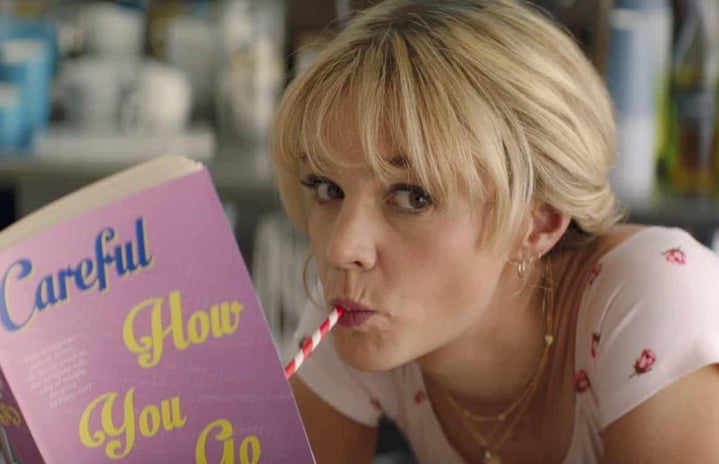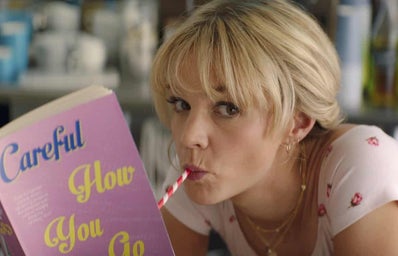TW: Rape, sexual assault
If you’re a fellow literature or film lover like I am, you’ve definitely heard about Manic Pixie Dream Girls. If not, I’ve got you covered. A Manic Pixie Dream Girl (MPDG) basically serves as a love interest to the depressed, hopeless and pessimistic male character of the story. She’s not like other girls – she’s cool. Her hair’s dyed pink and she wears her dad’s old basketball sneakers because she doesn’t like shopping for shoes. But her main trait is that she only exists to serve her broody, mysterious love interest. The MPDG doesn’t have any of her own goals or ambitions. She’ll change him at the end of the movie, right? If you’re a fan of romantic movies, this trope probably rings a bell. Claire Colburn played by Kirsten Dunst in Elizabethtown, Ramona Flowers played by Mary Elizabeth Winstead in Scott Pilgrim vs. the World and even Holly Golightly played by Audrey Hepburn from Breakfast at Tiffany’s are all examples of MPDGs. They’re eccentric and unlike any other girl – and they’re the only ones who can fix Mr. I-Don’t-Believe-In-Love.
There’s been a lot of criticism and backlash for this trope. There are even anti-MPDGs, for example, Summer played by Zooey Deschanel from 500 Days of Summer or Amy Dunne played by Rosamund Pike from Gone Girl. However, my favourite anti-MPDG is Cassandra Thomas played by Carey Mulligan from Promising Young Woman. It’s a unique take on Manic Pixie Dream Girls and proves that female characters shouldn’t always be treated as a love interest to the male protagonist. If you haven’t seen it (and I highly suggest you do), it’s essentially a revenge tale; Cassie is a smart and resourceful young woman who spends the movie trying to avenge her best friend who was raped and assaulted in medical school. Throughout the film, Cassie feigns intoxication at various bars and clubs, in order to figure out who attempts to take advantage of her while heavily intoxicated. She then reveals her sobriety and forces the men to admit that they’re in fact a predator. The film leads up to a plot-twist ending that highlights Cassie’s intense ambition and her willingness to go to lengths for her best friend.
Promising Young Woman has to be one of my favorite movies, with Cassie being a figure who seeks justice. She takes on the role of a literal anti-MPDG by having clear ambition and not stopping on anyone’s account. For example, we can even begin examining something as trivial as her style. It’s very common for MPDGs to act as though they don’t care about what they wear – they’re always effortlessly beautiful. Cassie, on the other hand, embraces her femininity. She’s not afraid of liking pretty, pastel-coloured dresses. She likes putting in the time to do her makeup and her hair. In a way, Promising Young Woman creates a safe space for girls to simply be who they are. There’s no shame in liking feminine things like dresses and makeup, but if you don’t, that’s all good too, be who you are! A lot of the time, the MPDG rhetoric creates a stigma around girls being girly. After all, the girly-girl never gets the guy in the movie. She’s a measly side character, sometimes even villainized (take Taylor played by Jodi Lyn O’Keefe in She’s All That). Alas, Promising Young Woman not only teaches us that it’s okay to embrace your femininity, but that you don’t need to be that effortlessly beautiful, different girl. You should, however, express yourself in ways that you feel comfortable with and not worry about how other people perceive you.
MPDGs are notoriously known for not having their own goals, ambitions and interests. As I previously mentioned, they quite literally exist for the character development of the main character, their male love interest. Luckily, Promising Young Woman has a response for that too. One of my favourite things about Cassie’s character is her ambition and objectivity. Her goal throughout the film is to avenge her best friend and she never lets up on it. Towards the middle of the film, Cassie gets a boyfriend, Ryan, played by Bo Burnham. This is the only time we see Cassie almost letting up and forgoing her vengeance plan. Basically, girl has a plan, girl meets boy and girl gives up identity to be with boy. It’s easy and simple like that, right? Well, not quite. Just when we think that Cassie is about to give up her double life, a huge bomb is dropped. I won’t mention what it is, but it does end up with Cassie leaving Ryan and Cassie threatening to expose his past faults. Promising Young Woman focuses on Cassie’s driven personality here, even though she almost did consider having a classic ‘happily ever after’ with Ryan, Cassie ultimately had her priorities in order. She made sure that her focus was to seek justice for her best friend rather than compromise her plans and spend her life with a man who hid his true identity. To me, this is one of the most important parts of the film. We see a woman give up her relationship to pursue something that’s important to her. That’s rare to see in Hollywood films but Promising Young Woman does it beautifully. It’s a perfect response to the sacrifice that’s common in the MPDG archetype and we finally get to see a strong woman choosing her ambitions over a picture-perfect ending.
The Manic Pixie Dream Girl trope is timeless and keeps on taking new forms. From Natalie Portman’s character Sam in Garden State all the way to Belle from Beauty and the Beast, the MPDG is an everlasting, and at times, even comforting archetype. At least we know for a fact that there’s a happy ending, right? Promising Young Woman takes a unique counter position and creates a perfect anti-MPDG—where love doesn’t conquer all.


